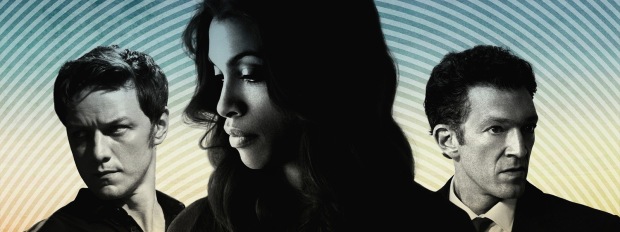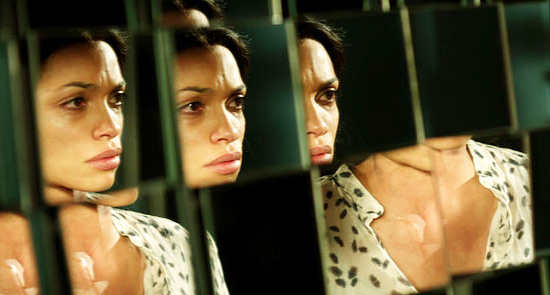I’d forgive you if you were crazy, but you’re not, you’re weak.
Last night I rallied my friends and we saw Blue Ruin, directed by Jeremy Saulnier. This film has won a bunch of awards and while I enjoyed the film making overall, the movie really dragged. I appreciate when a film builds up the tension and then is able to release it in a huge climax however I never felt like that tension was properly released with this one.
We meet Dwight (played by a transformative Macon Blair) in the middle of a complex story. The beginning of the film held that same slow pace but with acute attention to detail. Detail was paid to the routine and style with which the main character lived. a homeless man living in a busted up car in a beach town, the filmmaking leaves the impression that Dwight is patiently waiting for something, which allows him to organize his day-to-day life and cope with the present reality. That reality (and the wait) comes crashing down when a double murderer is released from prison and Dwight goes to meet him. Dwight is not a trained killer by any means and struggles to keep a clear head as he deals with the stress of seeking revenge, executing that revenge, messily executing the individual who was newly released from prison, and dealing with the repercussions.
The film traverses the line between psychological thriller and gory violence and as we dive further into the psychology of the main character, we wonder ourselves how far we would go for vindication. But Dwight is poorly prepared, and is barely able to keep ahead of his antagonists, who are trained in weapons and killing. a strategically violent family, the antagonists of Blue Ruin are well prepared for confrontation, as the final scene indicates (whoops, spoiler!). Dwight is not without skill, though. He thinks ahead, he is quick and nimble, escaping from situations in the nick of time and problem-solving on the spot in times of tension. This allows him to confront the armed and criminal family who has so thoroughly damaged his life.
a beautifully filmed thriller, Blue Ruin maintains it’s focus on the present events as they unfold. although it offers an explanation for the violence and revenge, the film doesn’t linger on the details. We’re left to imagine the grotesque murder of two lovers (the parents of Dwight) after a love affair goes array that has haunted the two families for decades. However, without offering more details, the film becomes difficult to follow since it fails to provide more concrete and timely explanations of who knows who, who is related to who, and who the families are. Part of this is by design, obviously, in order to provide a psychologically twisting narrative that keeps you engaged. However, the script, with all it’s “our parents, your parents, our aunt, your brother, this grandson, the guy in prison, this woman is your sister but the movie script makes you think they’re married” just ends up getting convoluted to the point that it becomes tedious to follow the plot line.
If the film passes the Bechdel Test, it barely passes. There are multiple female characters but they exchange only a few words between them, which may or may not be words that are about the men in the movie.
Despite the dragging narrative at times and the complicated interpersonal relationships, the film is fascinating to watch and cinematically beautiful. I’ll be looking forward to watching this film again at home and further evaluating it in the future. The title, Blue Ruin, apparently alludes to a catastrophe but may also reference the bullet-holed up blue car that Dwight drives everywhere.
I recommend seeing it and making yourself watch the gory parts. Don’t shut your eyes or you’ll miss some great moments and dark humor!
– Hans

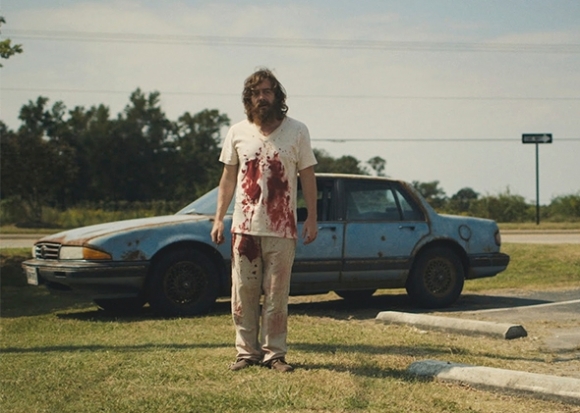



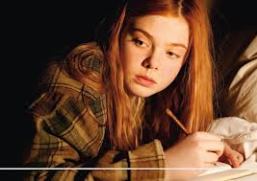
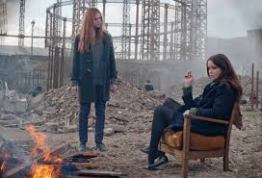
 Let me recap: James McAvoy plays this fine art auctioneer Simon, who steals a $27 million dollar Goya painting at an auction in order to repay his gambling debts. So it’s an inside job which is kinda cool.
Let me recap: James McAvoy plays this fine art auctioneer Simon, who steals a $27 million dollar Goya painting at an auction in order to repay his gambling debts. So it’s an inside job which is kinda cool.